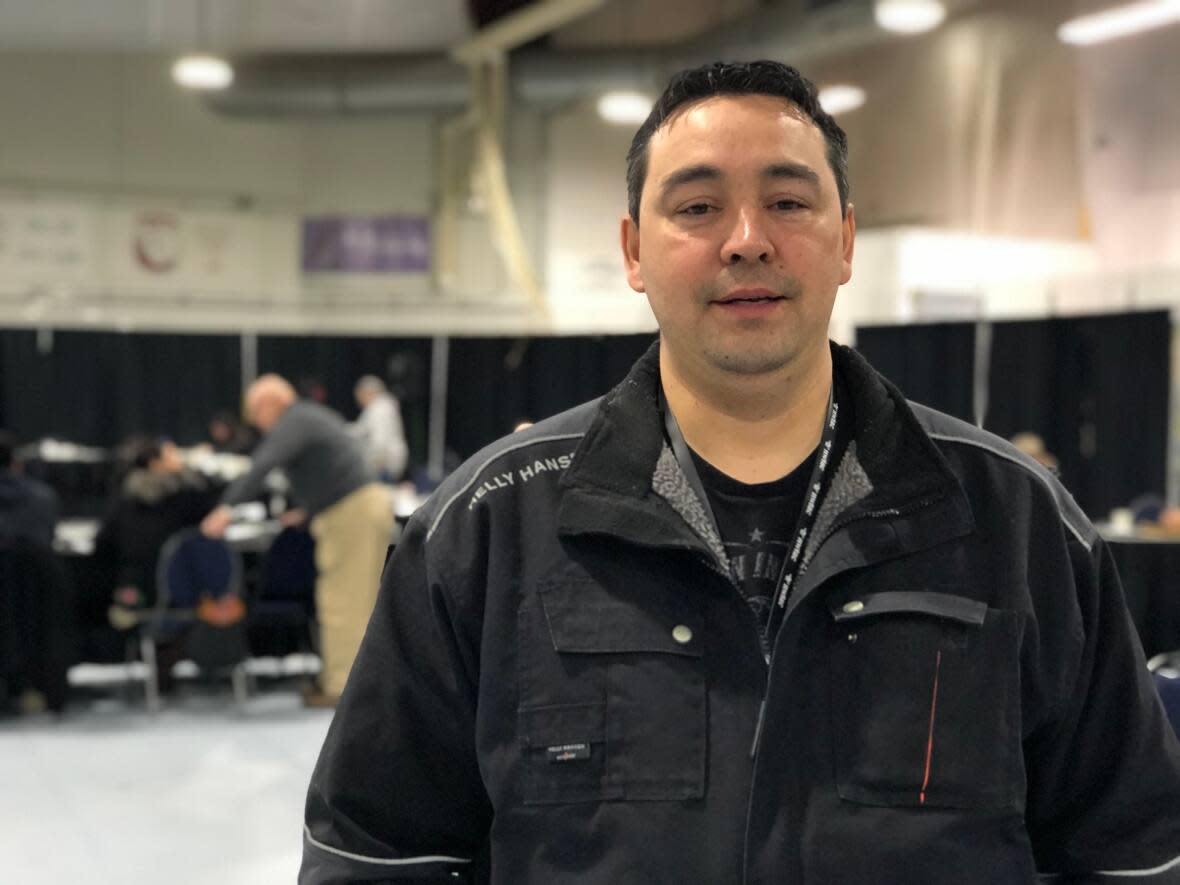Tuktoyaktuk mayor wants more leeway in COVID-19 restrictions for cultural gatherings

As the N.W.T. government prepares for an end to the COVID-19 public health emergency, the mayor in Tuktoyaktuk says it can't come a moment too soon.
Erwin Elias told Wanda McLeod, host of CBC's Northwind, this week he was frustrated his community wasn't given the opportunity to gather after it resolved an outbreak of COVID-19 in December.
Back on Nov. 8, four people tested positive for the virus. The outbreak peaked at more than 100 cases, but the community got back down to zero a little more than a month later.
Elias said the hamlet asked the Office of the Chief Public Health Officer for an exemption to hold a community event "right away" once there were no more cases.
"The hope was to have a community event, you know, after being in lockdown and living through these restrictions for, you know, going on two years," he explained. "We were turned down."
And then, cases started cropping up again.
There were 15 cases of COVID-19 in the community as of Wednesday, according to figures reported by the territorial government.
"If a community [got to] zero, the GNWT (Government of the Northwest Territories) should give them the opportunity to gather and to feast and dance and practice our cultures and stuff like that. I think that's the way it's got to be, moving forward," said Elias.
According to the current restrictions, household gatherings of more than 10 people, including no more than five people from the same household, are banned until at least Jan. 30. "High risk" activities including dancing, singing, traditional games, swimming and indoor sports are also banned.
On Wednesday, Julie Green, the territory's health minister, said the public health emergency would end sometime in the spring. That would not mean an end to the management of outbreaks, she said, but it would mean the end of public health orders and the COVID-19 secretariat.
Elias said he understands why public health restrictions are important, but he also said it's important to keep people happy.
"If you could give us an opportunity to, you know, gather and have a feast and a dance or, you know, something of that nature, then the communities will appreciate it."

 Yahoo Movies
Yahoo Movies 
